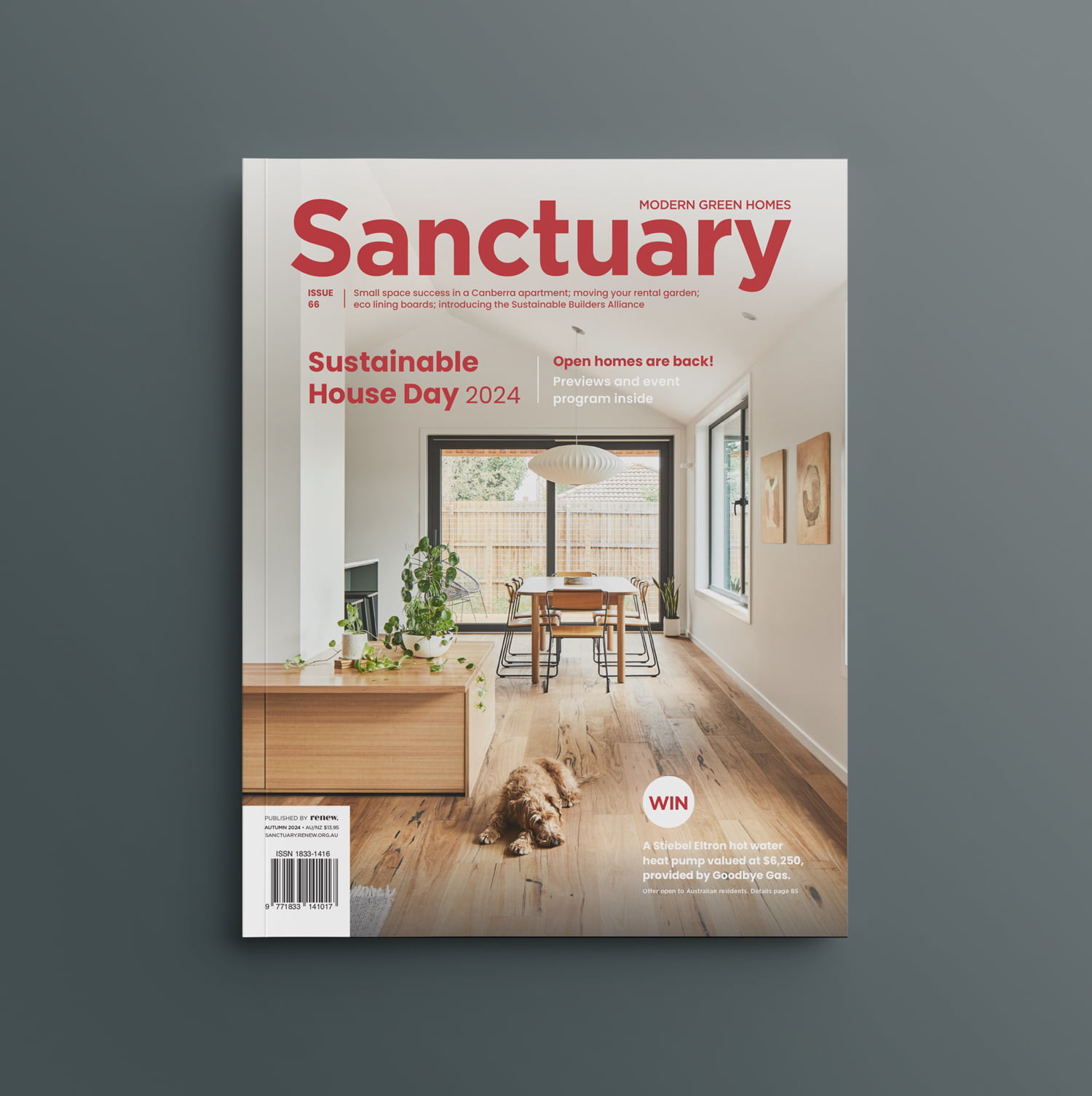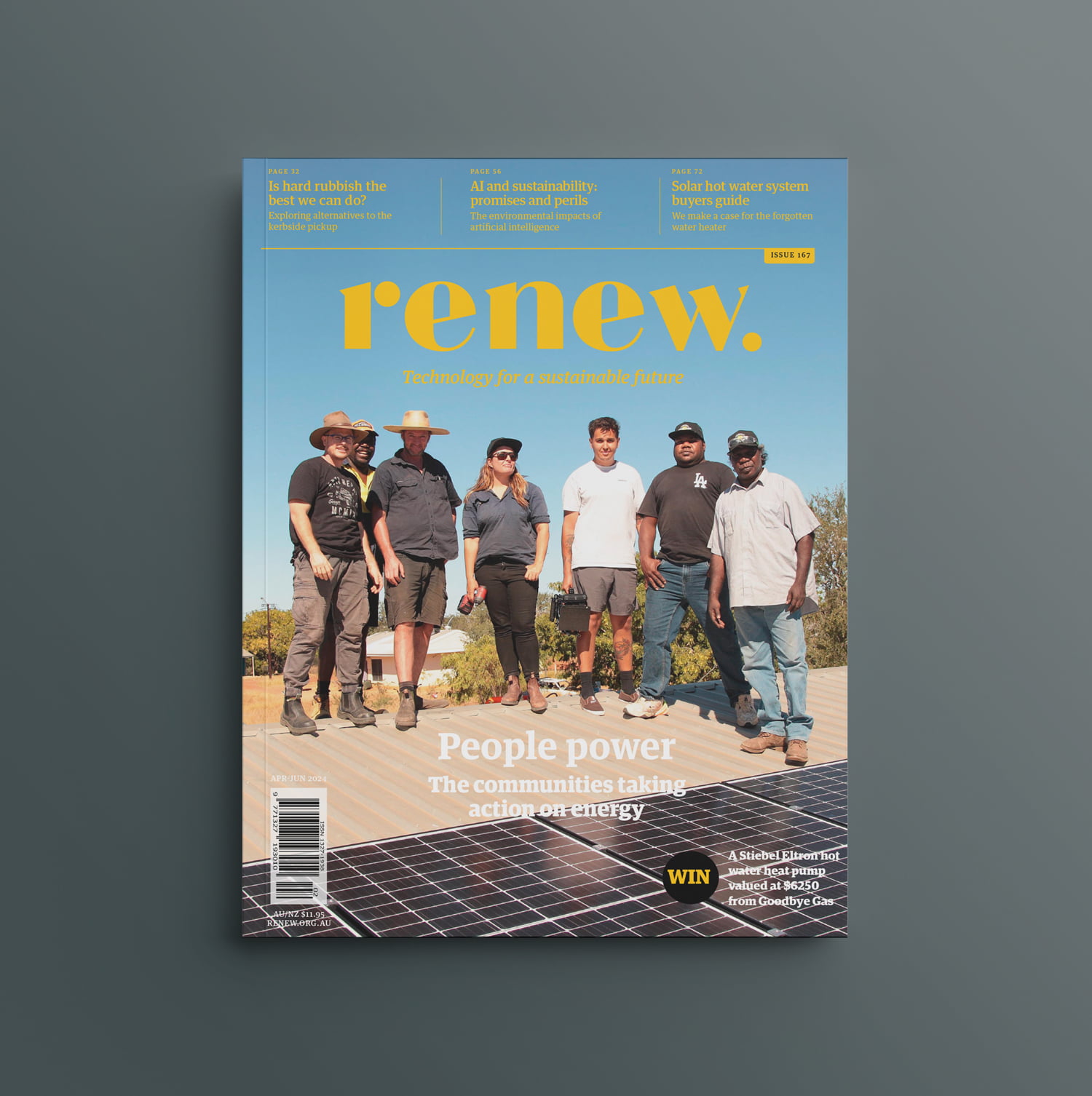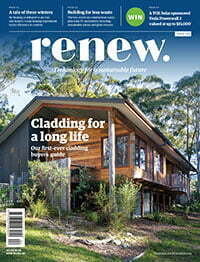Sustainable salons
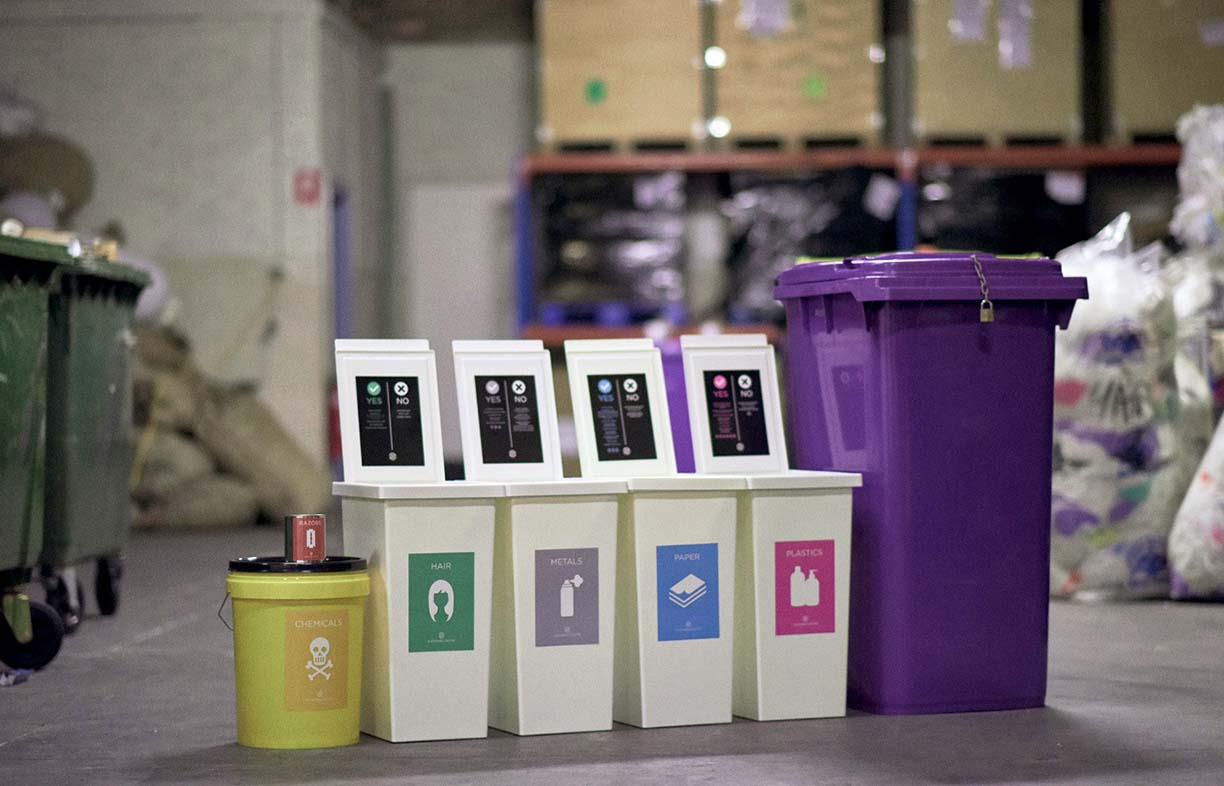
When our managing editor heard that her hair salon was joining a movement for greater sustainability, she was intrigued, and sent Kellie Flanagan to find out more.
Anyone who’s spent any time in a salon would know that, like in many personal care industries, waste is a problem.
It’s something that Paul Frasca, a former hairdresser, had worried about over his years in the hairdressing world. So in 2011, he and his partner, Ewelina Soroko, started out with a plan to carry out a good old waste audit, and went about analysing the contents of the bins of 160 salons across Sydney. The exercise confirmed what they already knew: salons produce a lot of waste that has nowhere to go. Much of the waste that salons generate—hair, chemical waste, fillers from product delivery—can’t easily go in any of the standard kerbside bins and salon waste foil was usually in small pieces that were not suitable to go through recycling sorting machines.
So where did it go? Plastics, packaging, hair, foil, all went to landfill; in the case of foil, Paul Frasca maintains, one million tonnes of it per year. The story gets worse for hair: in landfill it decomposes slowly and anaerobically, giving off methane, a more potent greenhouse gas than CO2. Chemicals such as bleaches, ammonia and dyes are washed down the sink and enter our waterways.
Working towards zero foil to landfill—Refoil
Paul and Ewelina’s first venture into resource recovery launched in 2012, after their discovery that foil constituted 50% of salon waste going to landfill. Refoil is both a foil product manufacturer, specialising in pre-cut salon foils made from recycled aluminium, and an advisory service, to help salons deal with their aluminium waste.
Refoil’s website advises how to get foils and other aluminium waste like colour tubes back into the recycling loop: by rolling foil up with any empty aluminium colour tubes into a ball. Refoil suggests tennis ball-sized balls or larger. This advice is backed up by Sustainability Victoria, which notes that pieces of foil too small to be sorted by material recovery facilities must be rolled up into balls.
Refoil suggests that salons put the balls of aluminium into kerbside recycling, or that they stockpile them and sell them to scrap metal dealers—Planet Ark’s businessrecycling.com.au website helps businesses find one local to them.
Other salon waste
To address other salon waste issues, in 2015 Paul and Ewelina began Sustainable Salons in Australia, and they’ve just expanded their operation into New Zealand. The service provides a way for salons to separate and stockpile not just foil, but up to 95% of the kinds of waste that salons typically generate. They provide labelled bins for inside the salon, and distinctive purple wheelie bins outside for collection from the kerbside by Sustainable Salons vans.
Sustainable Salons has a social enterprise element, too. Proceeds from the sale of readily recyclable waste are donated to charity. According to Sustainable Salons, 100% of the proceeds from the recycling of plastic, paper, cardboard and scrap metal are donated to the food charities OzHarvest and KiwiHarvest, and in Queensland and Victoria, the organisation has teamed with Endeavour Foundation and Mambourin respectively under the supported wage system to provide purposeful work for people with a disability. All supported employees work with staff to sort and prepare the materials for recycling and repurposing, and account for approximately 50% of the depot workforce. Sustainable Salons has also organised charitable events, such as volunteer hairdressers providing haircuts for the homeless and at-risk youth.
Since 2015, more than 750 salons—not only hair and beauty salons but also pet groomers, barber shops and cosmetics clinics across Australia and in New Zealand—have joined Sustainable Salons. And it’s not just in the capitals and satellite cities: according to the store location map, there are sustainable salons in regional towns too, such as Trentham and Yarra Glen in Victoria; Wollongong, Hazelbrook and Sutherland in NSW; and Crafers, Gawler and Teatree Gully in SA, to name a few. In New Zealand, Auckland, Hamilton and Tauranga all had member salons at the time of writing.
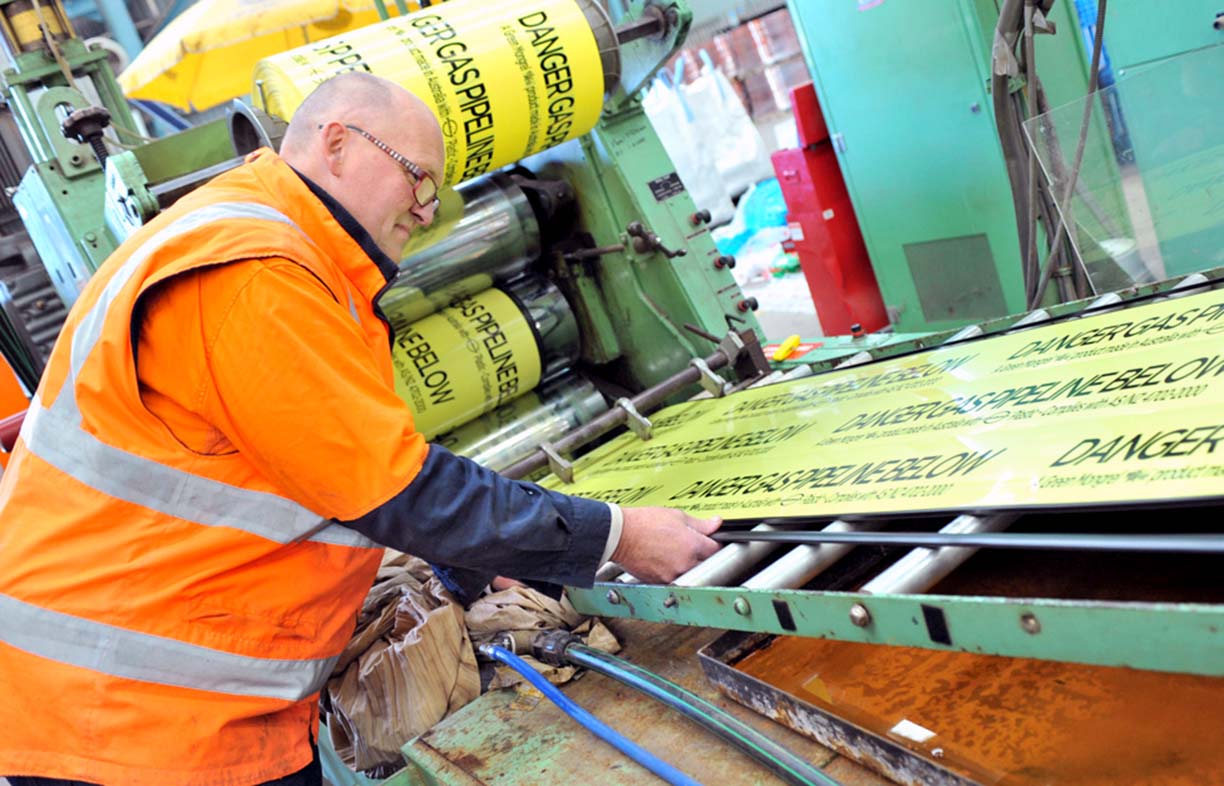
What happens to the materials?
At the Sustainable Salons collection centre, the waste is sorted and recycled.
Readily recyclable material such as metals, including aluminium colour dye tubes and foil, paper, magazines and unwanted tools are sold for recycling. Plastic packaging is sold to a specialist plastics recycler that makes outdoor furniture, landscaping material, industrial plastics and new packaging. Ponytails that are 20 cm or longer in length are carefully placed in individual paper envelopes by the salon staff and donated to the children’s charity Variety Australia to be made into wigs for children who have experienced hair loss.
Hair cuttings are stockpiled to be made into hair booms, which are being investigated for use to soak up oil spills. Excess hair chemicals are squeezed off the hair into a bucket at the salon and collected in the yellow Chemicals bin. After pickup, the chemicals are sent to chemical recycling plants to be neutralised and the water extracted to be used for industrial purposes, such as in roadworks and on construction sites.
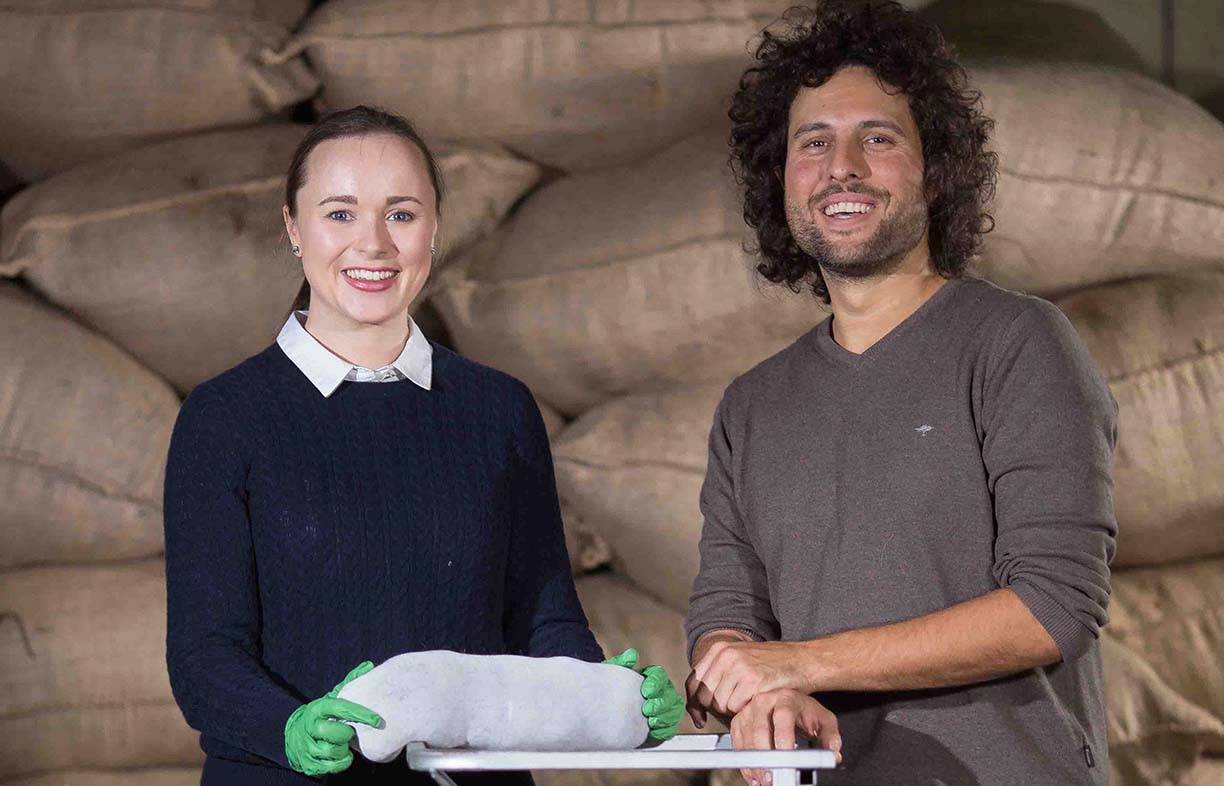
Hair booms for oil spills
One intriguing example of how the Sustainable Salons program rethinks salon waste is the concept of the hair boom. Hair booms are a fabric tube filled with hair and fur cuttings, and are being investigated as a method for removing oil from water, taking advantage of hair’s ability to attract oil to its surface (a property known as adsorbency).
Industry uses a range of solutions for mopping up oil spills, particularly those in marine environments: chemical dispersants, whose chemical makeup is often proprietary and the effect on marine life uncertain; and socks, booms and bags that are made of natural or man-made virgin materials.
Sustainable Salons has been funding research at University of Technology, Sydney (UTS) to consider hair booms as a more sustainable alternative for some uses. According to a spokesperson from Sustainable Salons, hair booms and hair mats are being tested on land, by plumbers, manufacturers, waste management organisations and on construction sites; for example, to help prevent oil spills contaminating soil and running off into stormwater systems.
Sustainable Salons currently collects hair and stockpiles it in its Sydney depot. Hair booms for use with marine oil spills are still in the research phase, says a spokesperson, in order to meet the requirements of the Australian Maritime Safety Authority. A research article released by UTS in November 2018 confirmed the effectiveness of hair to adsorb oil spills in water. Further study is now underway to find the right outer material and a responsible recovery procedure that ensures used hair booms are disposed of with zero environmental impact.
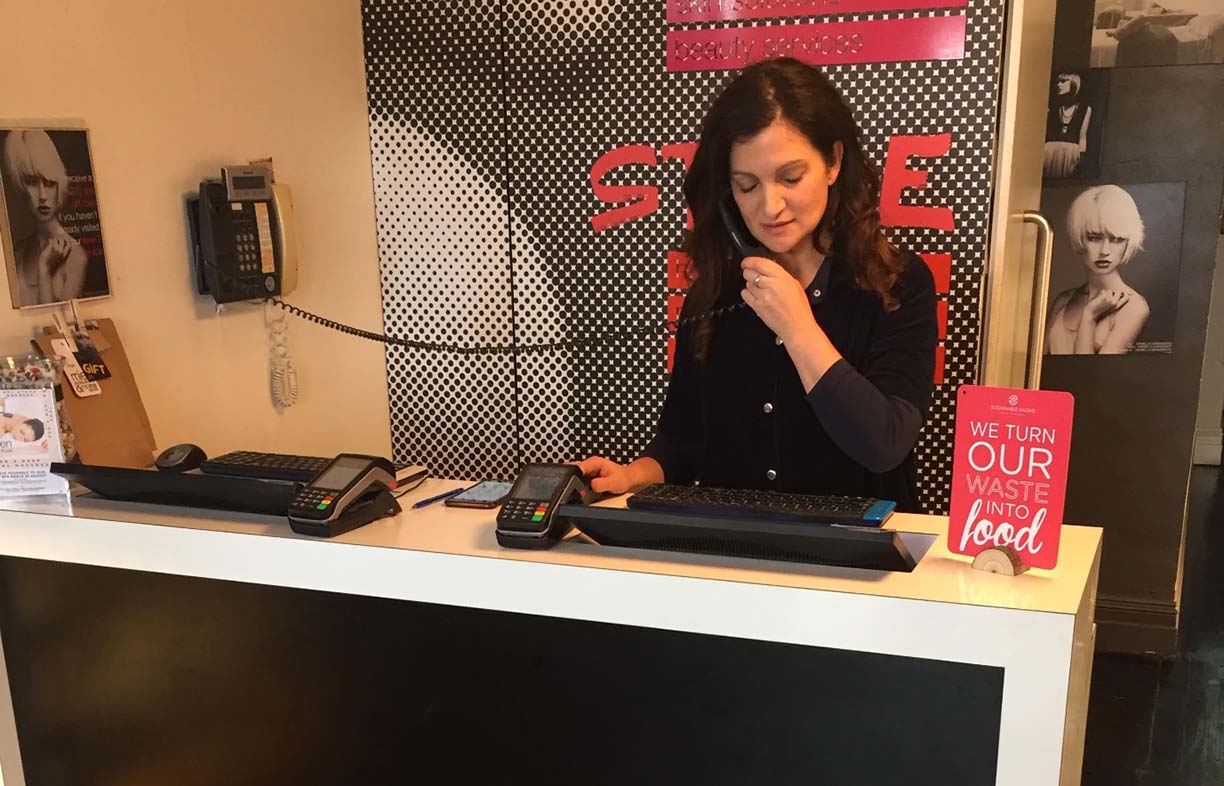
Mien: one of the 750 sustainable salons
After 20 years of co-owning Mien, a popular salon in Clifton Hill in inner Melbourne, Claudia Romeo is well aware of the waste problem that faces the hairdressing community.
The salon did what was possible with the available waste management facilities: they always recycled, Claudia says, but needed private rubbish collection to handle the amount of waste that the salon produced. She explains the salon joined Sustainable Salons in 2019 out of the need to do something “more serious” about sustainability and managing waste. She estimates that some 2.5 cubic metres of waste per week is now going through the Sustainable Salons bins, that would otherwise have gone to landfill.
There have been very few teething problems in introducing the new way of dealing with waste, says Claudia. On my tour of the system as it’s been implemented at her salon, it was clear to see that staff knew what went where.
Sustainable Salons encourages member salons to recoup some of the costs of participation from customers. At Mien, a ‘green fee’ of $2 is added to every client’s bill. According to Sustainable Salons, the green fee is broken down as follows:
- 40% resource collection and redirection
- 25% implementing green practices
- 20% supporting the community
- 10% researching recycling solutions
- 5% awareness and education.
Mien’s clients have, to a large extent, been supportive of the green fee. Claudia notes that having a very environmentally-aware local population has helped make the adjustment easier.
It is a commitment though. A fee is debited from the salon itself for the Sustainable Salons service, irrespective of whether it’s covered by the green fees collected during that period. According to a spokesperson from Sustainable Salons, the service, and resulting fee, is tailored to suit the needs of individual salons and is quoted based on in-salon consultation. “A lot of salon owners are afraid of that weekly expense, so having the clients on board with it is a huge help,” says Claudia.
Troublesome leftovers
Chemicals are required for certain processes in hairdressing. For example, permanent hair dyes contain ammonia and hydrogen peroxide, among other chemicals, to allow the colour to penetrate the hair shaft, according to Choice Australia. Volatile organic compounds, or VOCs, including formaldehyde, acetone, benzene, ethylene glycol, toluene and xylene, can also be present in hairsprays, bleach and beauty products. Many of these are harsh, and are known irritants of the hair, skin and respiratory system.
VOCs can also contribute to urban air pollution; in a study by the US National Oceanic and Atmospheric Administration, a common VOC associated with personal care products was shown to have morning atmospheric levels in two North American cities comparable to the levels of benzene from traffic emissions—simply from city workers having applied personal care products before their commute. In addition to their effect on air quality, VOCs are pungent, and may, as the EPA notes, “even in small quantities … adversely affect amenity at a local level,” an effect felt daily by salon staff.
Another problem area is textiles. In salons, towels are used after hair washing and to protect clients’ clothing from product. The end-of-life disposal of such textiles is a significant problem in Australia; the Australian Bureau of Statistics reported in 2011 that Australian consumers sent to landfill 88% of total leather and textiles supplied in 2009 to 2011. There are few services for collection and repurposing.
In salons, reusable towels can be durable and stay in service for a long time, but regardless of whether they are made of natural or artificial fibres, they require time, water and power to manufacture, launder and dry.
Biodegradable towels made of plant fibre are also available and are designed to use once before being discarded. While they are a time and water saver for salons and they do eventually break down, they have also taken energy and water to produce and may end up in landfill to break down slowly and anaerobically, releasing more methane into the atmosphere.
Durable is better, as are natural materials. Keeping fabrics in service for as long as possible, then repurposing, for example as cleaning rags, is far preferable to disposing of them; landfill should be the last resort.
How to be a sustainable salon client
Support salons that are working to be sustainable. If you have a favourite salon, ask them how they handle their waste and encourage them to look into resource recovery services such as Sustainable Salons. At the very least, you can let them know about how to prepare foil for recycling.
Get accustomed to reading ingredient lists to find products that will work for you, and ask your hairdresser about the presence of ingredients that concern you.
Choose companies and organisations that support initiatives that match your values. Consider salons that have professional accreditation in sustainability or green practices (e.g. Green Select from the Australian Hairdressing Council).
Tell your hairdresser about causes or brands that do sustainability work here and around the world. For example, via Hair Aid, hairdressers raise funds and teach hairdressing to those living in developing countries, and haircare brand La Biosthetique’s Colour With Care program donates proceeds to Medecins Sans Frontieres.
Try products where the manufacturer recycles or has sustainability programs, e.g. DeLorenzo’s Certified Sustainability Recognition program. And look for products that are low in ammonia or ammonia-free, or are low-VOC or free of VOCs such as formaldehyde.
Regional and small can make it difficult
If there aren’t any resource recovery services in your salon’s area, what can you do? Sometimes small businesses don’t have a lot of choice in managing their waste, and sometimes it’s a matter of taking incremental steps.
Jasmine King, a hairdresser who owns a small salon, Jasmine Lee Hair Design, in the growing central Victorian town of Castlemaine, explains some of the constraints. Running a business on a rented property, limitations on space and council regulations can all place limits on what can be done. She’s not in control of decisions around power sources or even how to store her salon’s waste on the premises. “I’m not allowed to leave a bin out on the footpath for the whole week and I physically can’t fit one in my little courtyard,” she says. Instead of relying on business waste disposal, which would have to be stored around the corner, her business is currently at the scale where she can simply sort the salon’s waste into different bins—paper and cardboard, plastic product bottles and general waste—and bring it home to place in her own kerbside bins.
Jasmine is concerned about the amount of waste from the salon that still ends up as general waste, though. She is aware that foil is 100% recyclable, but she currently doesn’t recycle it, admitting she doesn’t really know enough about where it should go. Cotton towels are used daily and, in the two years that she’s had the business, she’s had to retire about 10 of them from active service; they are stockpiled in the storage room and used for cleaning. She also makes use of biodegradable disposable towels for wringing water out of clients’ hair at the basin.
She’s keen to make changes to reduce waste and sees her main priorities as working out how to manage foil and colour tubes, and plastic product bottles. “One step at a time,” she says.
sustainablesalons.org/storelocator. Enter your town name into the search box to find out if there’s a sustainable salon near you.
wastefreesystems.com.au: an alternative salon resource recovery service based in Queensland that includes a bin service for mobile salons.
International Journal of Trichology article on hair cosmetics and effects of them: www.ncbi.nlm.nih.gov/pmc/articles/PMC4387693 (bit.ly/2AFDEsi)
Paper on the comparative effectiveness of natural and synthetic products in oil spill booms: www.sciencedirect.com/science/article/pii/S0301479718308570 (authored by Rebecca Pagnucco and Megan Phillips of UTS) (bit.ly/2k97rcp)
A review of the toxicity of chemical dispersants used to clean up oil spills: ncbi.nlm.nih.gov/pubmed/22435326
Search engine to help businesses find metal recyclers and scrap dealers in their area:
businessrecycling.com.au
further reading
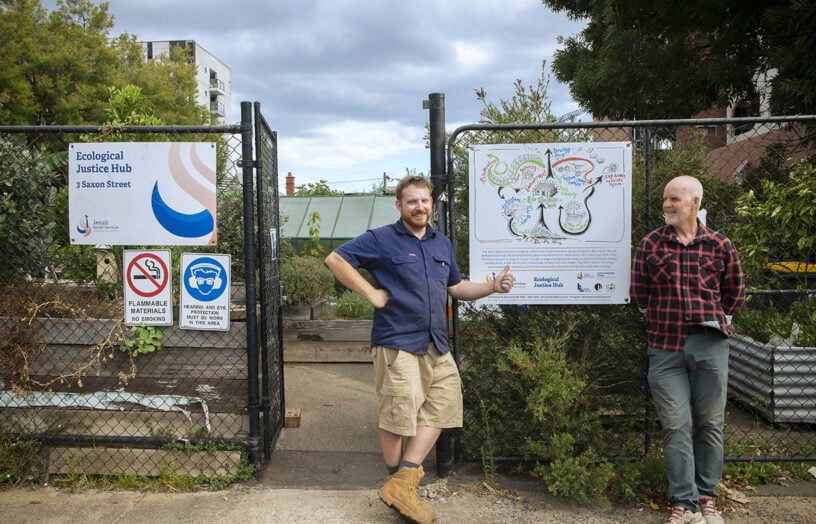 Reuse & recycling
Reuse & recycling
Community eco hub
Nathan Scolaro spends 15 minutes with Stuart Wilson and Michael McGarvie from the Ecological Justice Hub in Brunswick, Melbourne.
Read more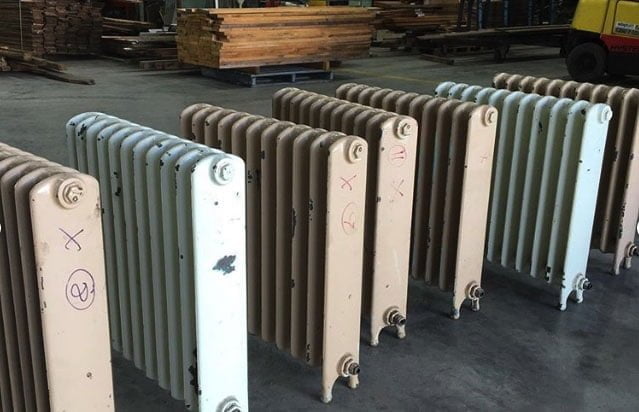 Reuse & recycling
Reuse & recycling
Recycled hydronic heat
Renew’s sustainability researcher Rachel Goldlust gives us a view of and from the Salvage Yard.
Read more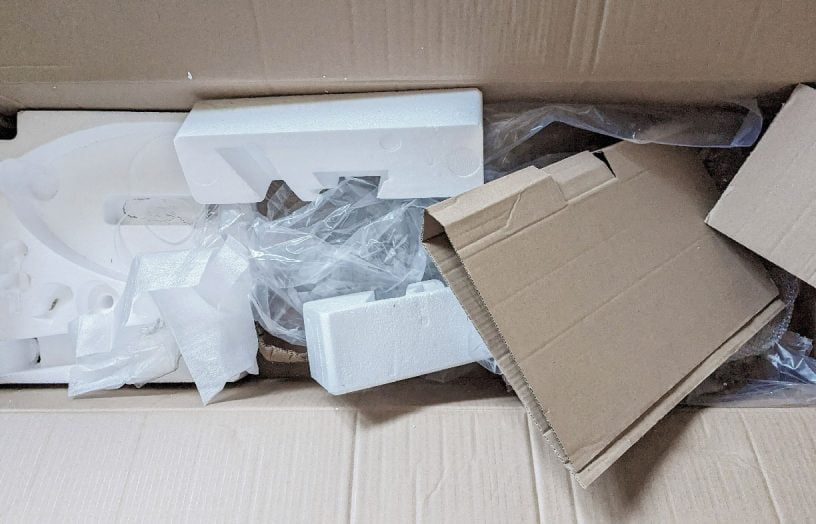 Reuse & recycling
Reuse & recycling
The future of packaging
Packaging comes with just about everything we consume, with far-reaching implications for us and the planet. Jane Hone asks how we can get a handle on it.
Read more